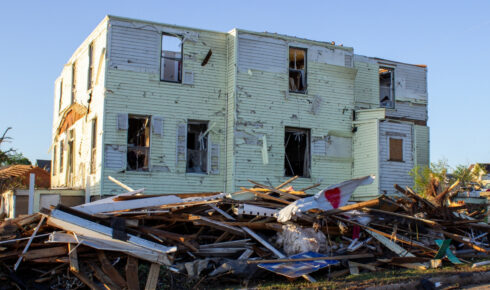
I grew up in a wonderful, godly home where I knew Jesus as the great reconciler of God to man.
My father was a pastor; my mom played the piano and led the women’s ministry. And I was in the front pew at least every Sunday morning, Sunday night and Wednesday night, all my life. Jesus was very real to me. I was saved, sanctified and filled with the Spirit—well, depending whom you ask, those last two may or may not have been true.
But there was something pretty big I missed about Jesus. And I didn’t catch it until I moved with my wife and kids to Beirut, Lebanon, as missionaries in 1992. We lived there for 12 years, and we now live in Dubai, United Arab Emirates. Here’s what I missed: Jesus is not only the reconciler between sinful man and holy God, but He also is the great reconciler between people, between warring parties and disconnected people groups. In Lebanon, I discovered “the Jesus I never knew,” to borrow a phrase from the book by Philip Yancey.
Jesus came to restore all that is broken, which includes the broken reality that Palestinians and Israelis usually don’t like each other. That hatred and violence exist between the Hezbollah, the Hamas, the Muslim Brotherhood and their enemies. That Democrats and Republicans can’t get along. Jesus came to restore all of it.
I began to read the Gospels in a new, fresh light. They weren’t just about Jesus the savior, who came to die, but also Jesus the peacemaker, who came to bring life—now, on Earth. And He came to give that life even to people who don’t believe in Him as Lord—Muslims and Jews, for instance.
Jesus’ teachings and lifestyle beg us to forgive. Not to judge. Never to worry or have fear. To lay down our lives for each other. And, the most radical of all, to love our enemies, to bless them and do good to them. To pray for them and, according to Luke 6:35, to lend to them without expecting a return. I think that’s called a gift.
This way of Jesus is radical. It’s counter-intuitive and, for sure, counter-cultural. It might cost us everything, even our lives, but, in the process, it might also heal nations and stop wars.
I was invited a few years back to be the chairman for a few meetings of the Arab League in Baghdad. I took three friends crazy enough to go with me. I chaired several of the meetings with Arab heads of state, and about 500 international, mostly Arab, delegates. They asked me to write a paper on injustices in the Arab world, so I did. But I wrote on the solution, rather than the problem: forgiveness, the core teaching of Jesus.
The reason we can live a life free from worry, fear, judgement and strife is forgiveness. First, that God forgave us but, right on the heels of that, that we can forgive others and ourselves. Therefore, we can be reconciled, both to God and to our neighbors.
I’ve learned that, when we first see Jesus as the reconciler of people to each other, and when we call them to that, Jesus then becomes so much more: God. Savior. Healer. Jesus divides spiritually, but He unites socially. I’ve seen Jew and Arab, Muslim and Christian, atheist and believer, sit and discuss the ways of Jesus together many, many times. It’s at that table of reconciliation that the Holy Spirit has maximum freedom to work.
Prayer Points
- Pray that our hearts and minds would be open to the ways of Jesus when it comes to being a person of peace and reconciliation between opposing parties.
- Pray that God would soften our own hearts toward those we need to be reconciled with. We have to first live in peace and forgiveness if we are to minister that to others.
Share your thoughts. See comments below, and add your own.


